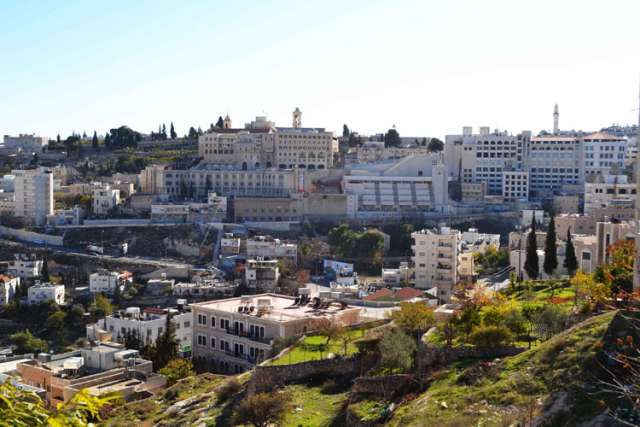Seven years later, as I arrived to begin a two-week assignment culminating in the Pope's arrival on May 24, the streets are crowded. The taxi drivers are prowling around Manger Square looking for an all-day fare to Hebron and the rest of the tourist-pilgrimage circuit.
Shop owner Assad Jackaman, who remembers selling olive-wood carvings to Canadian peacekeepers in the 1970s, tells me there have been four or five new hotels built in the last couple of years. It's obvious there has been plenty of other recent construction and restoration.
The traditional market of the old city is bursting with clothes and shoes from Turkey, candies, plastic ware, bolts of cloth and other things never intended for tourists. The fresh fruit and vegetables are subject to the skeptical eyes of shoppers in hijab. New cars and banged up old cars crowd the streets.
At first glance, these seem to be better times in Bethlehem, at least economically.


